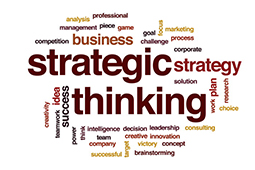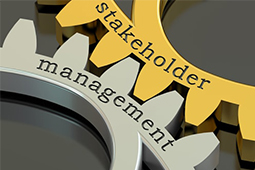Emotional Intelligence Training
Your day will go the way your emotional intelligence guides both your thoughts and actions. – Tyler Howard
A two-day emotional intelligence training programme for leaders and managers that identifies the various facets of emotional intelligence.
This will aid in the use of these emotional states in the relevant settings for desired behaviour modifications.
THE FOLLOWING DETAILS ARE FOR THE EMOTIONAL INTELLIGENCE TRAINING PROGRAMME (DURATION: 2 DAYS):
Emotional intelligence concerns an individual’s or a team’s awareness, appraisal, and use of emotions. According to research, the emotional quotient accounts for approximately 80% of adult achievement.
Training that focuses on the function of emotions in our behaviour can help to improve emotional intelligence.
As a result, the focus of this Emotional Intelligence for Leaders Workshop is on being aware of and prepared to understand others’ ideas and emotions, flexing our emotions as needed, and increasing our emotional intelligence to deal with any emotional condition.
- Self-awareness is the ability to be aware of one’s own feelings as they occur.
- To recognise and comprehend the interplay between emotions, thoughts, and behaviour.
- For example, to see cause and effect links such as how thoughts affect emotions, emotions affect thoughts, and how your emotions influence your own and others’ behaviour.
- Understand and put into practice taking responsibility for one’s own happiness and emotions.
- To be able to transform negative emotions into positive learning opportunities that lead to growth.
- To be able to assist others in recognising and utilising their emotions.
- How to enter the best emotional state to deal with a specific issue.
- Practice aggressive communication techniques and learn how to apply them in real-life situations.
- The Concept of Emotional Intelligence
- Relevance of EI in leadership scenarios
- Different models of emotional intelligence
- A summary of the key components of emotional intelligence
- Ten Suggestions for Developing Overall Emotional Intelligence
- Why is being aware of our emotions important?
- How to use self-awareness in scenarios
- Giving and receiving feedback positively through case studies
- How to manage and control your emotions?
- Techniques to control negative emotions like anger, etc.
- Defining actions raises their level of self-regulation.
- What exactly is it, and how can it be overcome?
- I classify stress situations using the 5 Whys–Root Cause Analysis method.
- Resilience and emotional intelligence
- How to build rapport and trust through empathy?
- Exercises and activities to build empathetic listening skills
- Knowing about “perceptual positions” and applying it
- Takeaways from the session
- Individual reflection and action planning for each participant
- Guidance from the facilitator, along with group discussion, for effective, conclusive actions.
- A printed workbook containing important content from the classroom session, as well as supplementary case scenarios and exercises, as well as appropriate reading material for future reference and personal notes.
- All participants completed an emotional intelligence self-assessment questionnaire, which included score interpretation and analysis of their emotional intelligence level.
- Several case situations for live role-playing and introspective activities for classroom practise.
- An optional pre-and post-assessment questionnaire with emotional intelligence evaluation for all participants is available.
- Internal teaser/flyer/brochure, if desired, to raise awareness of the Emotional Intelligence training programme within the client organisation.
- A pre-course reading or film on emotional intelligence subjects is available as an alternative.
- A printed workbook containing important content from the classroom session, as well as supplementary case scenarios and exercises, as well as appropriate reading material for future reference and personal notes.
- All participants completed an emotional intelligence self-assessment questionnaire, which included score interpretation and analysis of their emotional intelligence level.
- Several case situations for live role-playing and introspective activities for classroom practise.
- An optional pre-and post-assessment questionnaire with emotional intelligence evaluation for all participants is available.
- Internal teaser/flyer/brochure, if desired, to raise awareness of the Emotional Intelligence training programme within the client organisation.
- A pre-course reading or film on emotional intelligence subjects is available as an alternative.
- Empathetic skills
- Listening skills
- Building trust
- Controlling your emotions
- Stress management skills.
The two-day Emotional Intelligence training programme will help you achieve control over your life by controlling your emotions and managing yourself!
APPLY FOR A QUOTE RIGHT NOW!
Our ‘Emotional Intelligence’ training programme can be conducted at your preferred location in India or abroad.
Dates of training are flexible, depending on the needs and requirements of the client.
In-house Training Locations: We have professionally qualified trainers all over India, allowing us to give training to our clients anywhere in the country.












